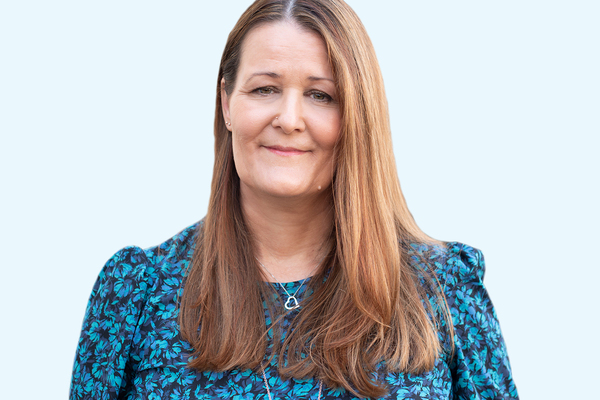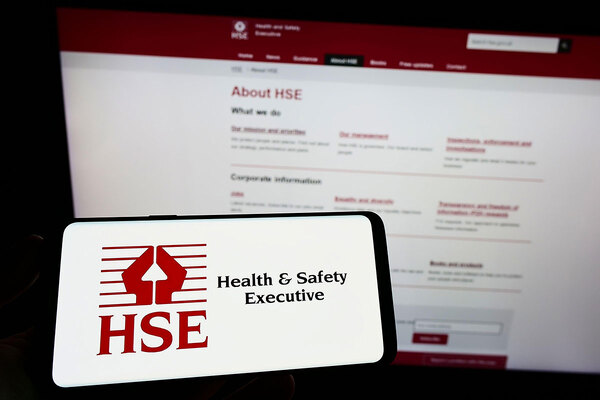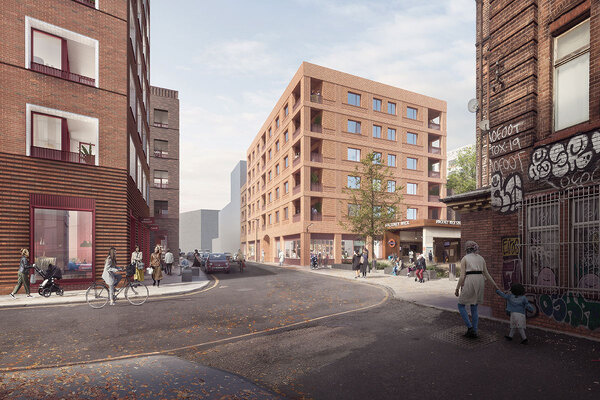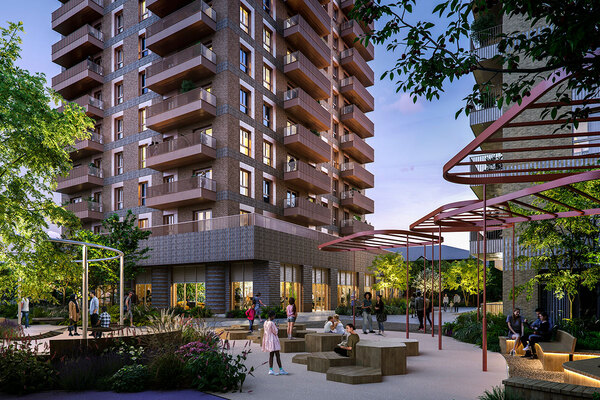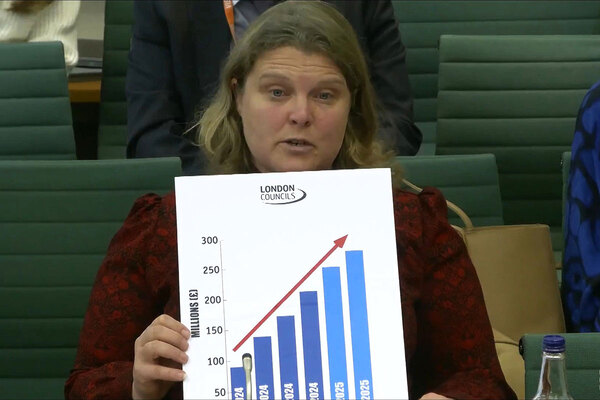What can we learn from past projects when it comes to sustainable supply and development?
Looking back at Greenwich Millennium Village offers inspiration in creating sustainable homes and communities, writes Kye Gbangbola, director of Total Eco Management
In the UK, the construction sector is witnessing a significant transformation, driven by the imperative to address climate change and enhance social well-being. This evolution is characterised by a profound shift in environmental, social and governance (ESG) strategies, reflecting a broader commitment to sustainability, green skills and social impact.
Sustainability is increasingly crucial to organisations of all sizes in meeting national and international regulatory requirements, which increasingly mandate ESG as a licence to operate.
Sustainability is not a new phenomenon, but actually harks back to constructing excellence. We shouldn’t forget London’s Greenwich Millennium Village (GMV), a 1990s phenomenon, in this context.
The development consists of 1,200 mixed-tenure, energy-efficient homes with low bills and beautiful Ralph Erskine design. GMV has gardens, green roofs, award-winning architecture, schools and doctors – impeccably connected infrastructure. As regards security, it takes our right to feel safe at home seriously. GMV has cycleways, parks, recreation, retail, shops, cafes and restaurants, creating jobs underpinning the local economy, all close to Canary Wharf.
GMV used green building materials, energy-efficient appliances and lighting, and has great biodiversity. It even has its own farm, Mudchute, an oasis of calm contributing to well-being, health and happiness.
“Nearly 30 years on, Greenwich Millennium Village continues to be a thriving, sustainable community, and it continues to create financial and impact value”
The hard work was done upfront during inception, briefing and design. A coalition of public, private, third-sector, can-do people engaged a great range of stakeholders. We sought to mitigate and prevent negative social, environmental and economic impacts.
The result has been GMV’s global legacy for sustainable development. The diverse community and culture generated are so loved that people move within the development but rarely move out of it, resulting in high retention rates.
This is the epitome of how well-designed and well-managed places can contribute to delivering social impact. Nearly 30 years on, Greenwich Millennium Village continues to be a thriving, sustainable community, and it continues to create financial and impact value.
I am proud to have been part of the consortium that designed, constructed and managed the completed homes. The GMV baseline is a bar that few developments achieve nearly three decades on. At a recent Build to Rent conference in Canary Wharf with the sector’s C-suite leaders, we looked across to GMV as I extolled its virtues alongside the best of today’s projects.
Sustainability seeks to lead us to create excellent companies. There is no shortage of standards used by real estate organisations: TCFD, IFRS, CDP, Sustainability for Housing, GRESB, SDGs, EU CSRD, and the latest, the European Union Corporate Sustainability Due Diligence Directive (CSDDD).
However, the gold standard used by 78% of the world’s top organisations is the Global Reporting Initiative (GRI). This focuses on common comparable metrics around a baseline of measurement disclosure, due diligence, risk, accountability and openness through transparent public reporting of performance.
“Better supply chain management boosts sustainability and supplier engagement, and supports procurement law shifts from ‘least cost’, to ‘least risk’”
CSRD and CSDDD are contributing to a wave of due diligence and transparency regulation sweeping the business world, forcing companies to pay greater attention to the environment and human rights impacts in their supply chains. Better supply chain management boosts sustainability and supplier engagement, and supports procurement law shifts from ‘least cost’, to ‘least risk’. Sustainability is a business differentiator that creates value and attracts investment at more favourable rates.
Leading organisations recognise their role in fostering community well-being and resilience through social impact. Initiatives range from affordable housing schemes and community engagement programmes, to investments in local infrastructure and services. By prioritising social value, developers are not just building homes, they are nurturing vibrant, sustainable communities and green skills.
We now see a selection of great supply chain organisations providing their services with a sustainable approach, such as Dodd Group and Smarter Services, reporting to internationally recognised standards for creating value. The work of such companies is often punctuated by examples of social impact that improve the health, happiness and well-being of people in the communities in which they work.
Smarter Services has an initiative called ‘delivering quality with our hands and hearts’, in which they volunteer time and materials. In one project, they repaired and restored the property of Warming Up the Homeless, a charity which had sustained flood damage, while keeping the centre operational.
In another, they created an orchard where residents can harvest fruit at no cost, promoting biodiversity and helping local wildlife while bringing the community together. In another, they developed peace gardens with resident-made seating, turning unused areas into spaces that are good for mental health and community spirit.
Supply chain contributions enhance the sustainability achievements of the construction and real estate sector. Such excellence should be encouraged and supported.
Kye Gbangbola, director, Total Eco Management
Sign up for our asset management newsletter
Already have an account? Click here to manage your newsletters




